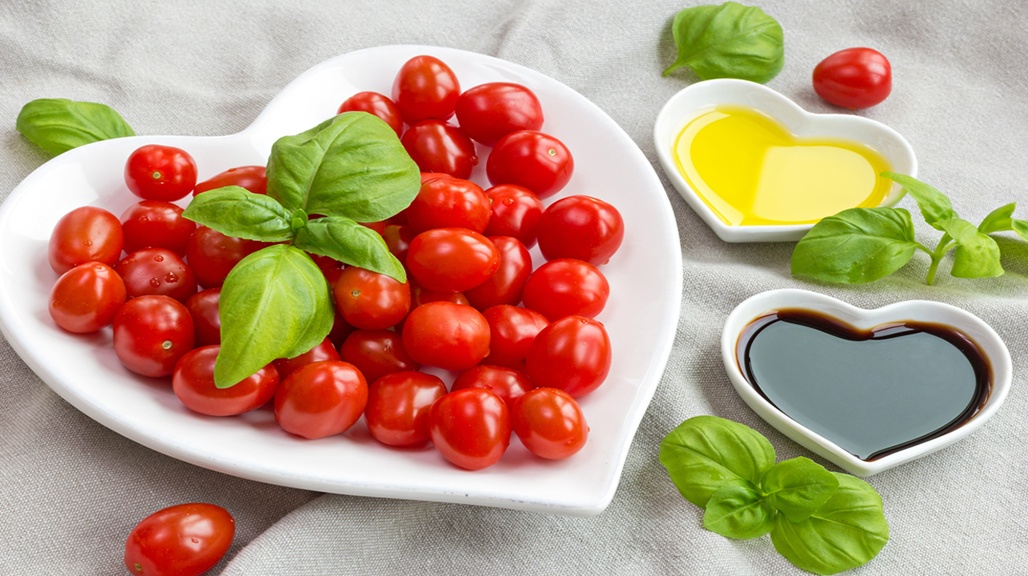9 Foods For A Healthy Heart
 Contributed by
Pauliina Salmenhaara
September 30, 2016
Contributed by
Pauliina Salmenhaara
September 30, 2016

Cardiovascular disease (CVD) is a term used to describe any abnormal condition characterized by dysfunction of the heart and blood vessels.
According to the World Health Organization, cardiovascular disease is the number-one cause of death globally, with more people dying annually from CVDs than from any other causes. When blood flow to the heart, brain or body is restricted by a blood clot and built-up fats, it can cause heart attack and stroke.
Causes Of Cardiovascular Disease
There are many causes of cardiovascular disease. Here are some that you should know about in celebration of World Heart Day:
- smoking
- alcohol
- hereditary factors
- ethnic background
- poor diet
- lack of exercise
- stress
- high blood pressure
- diabetes
- being overweight
Men are more susceptible to CVD. In fact, twice as many men than women die because of this disease. Read more about men’s diseases here.
A healthy lifestyle is very important, especially if you have a family history of CVD. Bad eating habits that are practiced during childhood years can continue into adulthood. Hence, it is important for parents to monitor their kids’ diet, especially fat, salt, and sugar intake.
Types Of Cardiovascular Disease
Coronary heart disease: The coronary arteries are the two major blood vessels that supply our heart with blood. Coronary heart disease is a condition in which built-up fatty deposits in the coronary arteries can block the blood and oxygen supply to your heart, causing heart attack.
Stroke: A stroke is a serious medical condition that happens when the blood and oxygen that flow to the brain are cut off, causing the death of brain cells. Stroke can cause brain damage and possibly death.
Peripheral arterial disease: Also known as peripheral vascular disease, this type of CVD happens when there’s a blockage in the arteries to your limbs. Most of the time, patients are not aware of the changes until the diameter of the arterial lumen has been reduced by half. Symptoms include pain in the legs, thigh, hips or calves while walking.
Aortic disease: The aorta is the largest blood vessel in the human body. Its main function is to pump oxygen-rich blood back from our heart to the rest of our body. The most common aortic diseases are called aneurysm and aortic dissection. An aneurysm is a growth of an anomalous lump in the wall of the artery. On the other hand, aortic dissection occurs when the wall of aorta tears open completely, leading to decreased blood flow to the organs.
Hearty Foods For A Healthy Heart
The best way to prevent CVD is to maintain a healthy and a well-balanced diet. Eat healthy foods, exercise regularly, stop smoking and lessen or completely eliminate alcohol intake. As early as possible, we need to be wary of what we eat. That being said, here is a list of the top foods that strengthen our heart:
Fresh herbs: Herbs not only reduce your salt intake but also offer a lot of health benefits. Read our top 10 herbs and spices here.
Red wine: An agent found in the skin of red grapes called resveratrol offers protection against cardiovascular disease. Researchers also believe that resveratrol prevents immature fat cells from maturing, which decreases the risk of obesity.
Black beans: These contain folate, antioxidants, magnesium and fiber that help lower blood pressure and control both cholesterol and blood sugar levels.
Tofu: This is a good source of numerous minerals such as protein, amino acids, iron, zinc, calcium etc. It is believed to prevent the risk of heart disease, as tofu lowers the levels of cholesterol, which then lessens the risk of high blood pressure. Be sure to buy non-GMO soy products.
Olive oil: The omega-6 fatty acids found in olive oil decrease the risk of stroke and heart attack. It also contains good-for-the-heart monounsaturated and polyunsaturated fats.
Coconut oil: Rich in polyphenols, which reduce blood pressure, this is especially beneficial for older people. Coconut oil also lowers bad cholesterol and helps with weight loss.
Walnuts: High in polyunsaturated fats, walnuts reduce inflammation and cholesterol, which can lead to heart disease. Additionally, they are the only nuts with high levels of plant-based omega-3 fatty acids.
Almonds: Known to reduce heart disease and lower cholesterol levels, as they are high in monounsaturated fats.
Edamame: “Edamame is a young soybean that has been harvested before the beans have had a chance to harden.” As with soy beans, many studies have suggested that a high intake of plant foods, such as edamame decreases the risk of obesity, heart disease, high cholesterol and atherosclerosis.
Raw Food For The Heart
A new study suggests that a raw and vegan diet is the best option for strengthening our hearts and eradicating the risk of CVD. Raw food keeps the enzymes found in plants and fruits intact, thus, treating and boosting the immune system of our body.
Although it is an ongoing debate of whether to go fully raw or not, we believe that eating a well-balanced diet is still key. Always ask for your doctor’s advice on which diet is good for your heart and your overall wellness.
—
We are the leaders, activists, innovators, and visionaries – whether in the public eye or behind the scenes – who are revolutionizing the way people think and live. We are #ConnectedWomen.
Join the Connected Women community now, it’s free!










Sorry, the comment form is closed at this time.